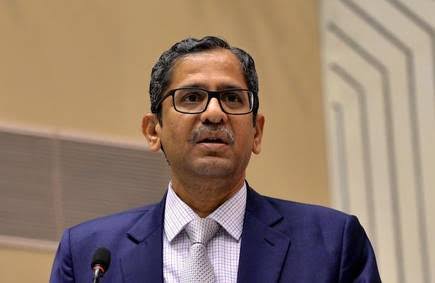“The sedition law is a colonial law. Do we still need the law in our country after 75 years of Independence,” CJI NV Ramana asked.
Describing the British-era sedition law as “colonial”, the Supreme Court today asked whether it was “still necessary after 75 years of Independence”. The law is a serious threat to the functioning of institutions and holds “enormous power” for misuse, the court said.
It would examine the validity of the sedition law, the top court said, and asked the Centre to respond to a former army officer’s petition that says the law causes a “chilling effect” on speech and is an unreasonable restriction on free expression, a fundamental right.
“The sedition law is a colonial law. Do we still need the law in our country after 75 years of Independence,” Chief Justice NV Ramana asked.
“The dispute is it is a colonial law, the very same law was used by the British to silence Gandhi.”
Several petitions have challenged the sedition law and all will be heard together, the court said.
“Our concern is misuse of the law and no accountability of the executive,” the Chief Justice added.
While the Supreme Court called the law “a serious threat” to the functioning of institutions, CJI NV Ramana said: “There is enormous power of misuse. We can compare it to the carpenter, instead of cutting wood, cutting the forest itself. That is the effect of this law.”
He also said there was “minimal conviction or very low rate of conviction” in the history of the law.
Major-General (Retd) SG Vombatkere, the petitioner in this case, argued that Section 124-A of the Indian Penal Code, which deals with the offence of sedition, is wholly unconstitutional and should be “unequivocally and unambiguously struck down”.
The petition was heard by the bench of Chief Justice Ramana, AS Bopanna and Hrishikesh Roy. The petition also says any law criminalising expression based on unconstitutionally vague definitions of ”disaffection towards the government” is an unreasonable restriction on the fundamental right to free expression.
It says there is need to take into account the “march of the times and the development of the law” before dealing with Section 124-A.
As an independent media platform, we do not take advertisements from governments and corporate houses. It is you, our readers, who have supported us on our journey to do honest and unbiased journalism. Please contribute, so that we can continue to do the same in future.

